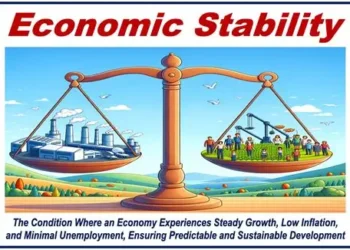The Paramount Chief of the Asogli Traditional Area, Togbe Afede XIV, has once again criticized the approach used by the Bank of Ghana to fight inflation.
The current approach, he said, is not yielding the expected outcomes and as such, called for a relook at the approach to help tackle inflation as a country.
“The Bank of Ghana has always tried to fight inflation with high interest rates, but it has not worked. The problem is they increase interest rates based on recorded inflation, among others, which is effectively past price changes, instead of expected inflation. Their approach inadvertently transmits past trends into the future, in a self-fulfilling prophecy. We need, as a nation, to look critically at how we fight the battle against inflation”.
Togbe Afede XIV
Change in structure of Ghana’s economy
Speaking to the board of the National Petroleum Authority who paid him a courtesy call, Togbe Afede XIV lamented that most of the big companies in vital sectors of Ghana’s economy are owned by foreigners which he said, is not good for Ghana. Togbe Afede XIV further said the structure of the economy has to change because high inflation has become a permanent feature.
“If you look at our economy, including the oil and gas sector, you will realize that the bulk of it, unfortunately, the most important sectors, are owned by foreigners. So, a huge chunk of our earnings accrues to foreigners. Our mining, banking and telecoms sectors are dominated by foreigners. Thus, large movement of funds out of these sectors, for dividend payments, for example, wipe out our trade surpluses, and invariable, we suffer deficits, with adverse ramifications for the cedi. It means that the structure of our economy has to change”.
Togbe Afede XIV
The business mogul has once again charged the Bank of Ghana to address the perennial volatility of the Ghana cedi and the high interest rates in the country. He iterated that the Central Bank is veering off its core mandate of ensuring price and exchange rate stability as its contribution towards the realization of the macro-economic objectives of growth and job creation.
The Paramount Chief of the Asogli Traditional Area noted that banks in Ghana, including the Central Bank, make so much profit because of the high interest rates they charge on loans which continue to cripple other sectors of the economy.
“High interest rates have only succeeded in creating the most profitable banking sector in Africa, while wreaking havoc on other sectors and destroying the structure of our economy”, Togbe said.
IEA calls for change of approach in the fight against inflation
The Bank of Ghana is currently reviewing developments within the economy during its 106th regular meetings. Rising inflation is expected to feature predominantly in its discussions as the Governor of the Central Bank, Dr. Ernest Addison, has earlier admitted that the current inflation is “baffling to all of us”.
Ghana’s inflation continued its relentless run in April 2022, rising to 23.60% year-on-year as against 19.40% in March 2022.
Meanwhile, the Institute of Economic Affairs (IEA) has also raised concerns over the current inflation which it believes, will force the Central Bank to hike the policy rate by another 200 basis points in an attempt to reduce excess liquidity in the system.
According to the IEA, Ghana has a long history of inflation with strong supply or cost undercurrents, in particular, food, fuel and the exchange rate.

However, the policy think tank raised concerns over the tools often employed to fight inflation in the country. Being an essentially demand-management tool, the IEA stated that the Inflation Targeting framework currently being used by BoG, is less suited to Ghana’s type of inflation which is more supply-driven.
The policy think tank noted that the BoG is using a more demand-driven approach to fight a supply-driven phenomenon, which makes it ineffective. Therefore, the IEA called on BoG to adopt another approach, well-suited for Ghana’s context, to fight inflation.
READ ALSO: Rethink Innovative Agriculture, the Quest for Bio-Fertilizer is on- CSIR-SARI























